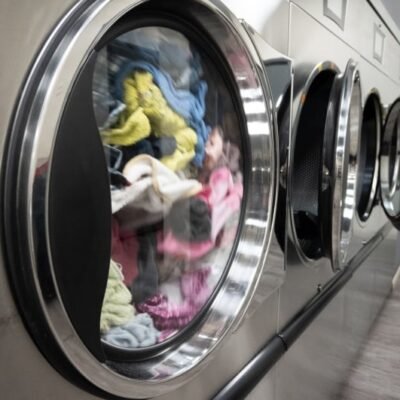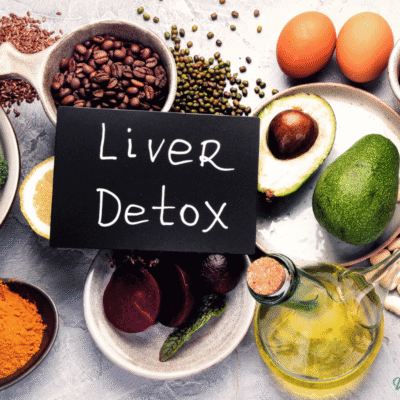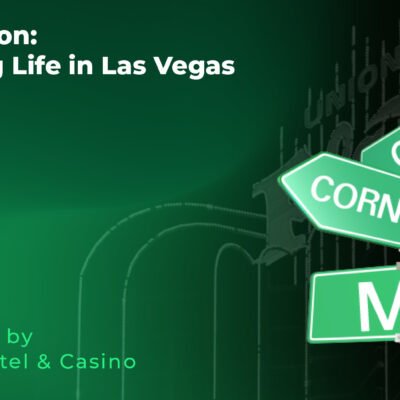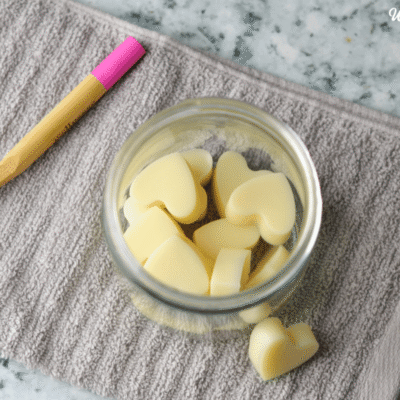“The show needs more glitz.”
Legend has it that Liberace gave Elvis this advice in 1956, guidance that eventually led the King to don the iconic white bedazzled jumpsuit synonymous with Vegas itself. The anecdote is one highlighted in Glitz, a show that plays at Gipsy, a gay bar in Las Vegas’s Fruit Loop district, as part of the bar’s show kids night. The show tells the story of the historic bar, of Las Vegas, and of the city’s trailblazing queer icons.
Gipsy has a 40-year history in Vegas, but its newest incarnation only opened months ago. Its transformation is part of a wave of change in Vegas’s queer bar scene in the last year. Six gay bars in Las Vegas have closed since June 2023. These included Vegas institutions that operated for decades, reliable late-night dive bars, and one popular nightspot. And while the closures happening in quick succession seems bleak, the queer nightlife scene in Vegas isn’t shrinking as much as it is shifting. Nearly as many queer bars have opened within the same 12 months, and they’re offering something that the bars’ owners believe the newer generation is clamoring for — entertainment. Anchored by RuPaul’s Drag Race viewing nights, community pool parties, and rollicking drag brunches, a louder style of queer bar is flourishing in Las Vegas.
:no_upscale()/cdn.vox-cdn.com/uploads/chorus_asset/file/25541219/Queen_Brunch_59.jpg)
That’s not to say that members of Vegas’s queer community won’t mourn the staples that closed: Freezone in the historic Fruit Loop neighborhood; the Las Vegas Eagle, following the death of owner Judy Nelson; both the Spotlight Lounge and Coop’s Cabaret in the Historic Commercial Center District; the short-lived Jimmy’s at Madison’s, and, perhaps most shockingly, Charlie’s Las Vegas, a spin-off of the renowned gay cowboy bar in Denver that became a beloved Vegas institution in its own right.
“It’s really sad for me as a part of the LGBTQ+ community in Las Vegas,” says Eduardo Cordova, the owner of Queen Bar and the adjacent Qarma Nightclub. “It’s sad any time there is one less safe space.” Cordova opened Queen just last fall, but he has been running the Temptation Sundays gay pool party at Luxor for years. He says that the closures of the Eagle, which had been open since 1988, and Charlie’s felt like especially hard hits. “One of the biggest shocks was Charlie’s,” says Cordova. “And the Eagle was around for decades. It was known for the original underwear party, and such a staple.”
Even in the wake of these losses, drag brunch at Queen (1215 South Las Vegas Boulevard) near the Strat has become so popular that Cordova is expanding the hours, hosting brunch on weekdays as well as weekends. And chef Roman Allen, previously of the Pepper Club, is now helming the kitchen — adding dishes like the lavender haze French toast, served upright and layered with ube, guava, and strawberry, to the menu.
:no_upscale()/cdn.vox-cdn.com/uploads/chorus_asset/file/25541226/Queen_Brunch_38.jpg)
Las Vegas’s earliest gay bar scene started taking shape in the 1970s, in the wake of the 1969 Stonewall Riot in New York City, with Maxine’s and the Red Barn — which lived as non-queer spaces during daylight hours — and the openly gay Le Café. Today, Las Vegas is largely an inclusive city — especially in contrast to states that are being targeted by Republican-led anti-drag and anti-trans legislation. But it wasn’t always like that. Even local legends Liberace and Roy Horn were forced into muddy half-in, half-out existences. “Our ability to be as out and as loud and as proud as we are today wasn’t always there,” says Garrett Pattiani, the co-owner of Q Vegas Magazine.
Recently, a bar with a 40-year history reopened in Vegas’s gay district, affectionately called the Fruit Loop, with a roster full of events for entertaining the bar’s “show kid” regulars. Gipsy (4605 Paradise Road) has survived arson, lawsuits, and a total demolition in its four decades of existence. Its newest incarnation opened this year in a completely new building — with purple tones, burnished metal palm trees, pretty floral wallpaper, and a kitchen that churns out punchy cocktails, irreverent brunch dishes, and sushi.
:no_upscale()/cdn.vox-cdn.com/uploads/chorus_asset/file/25541238/gipsy_interior_1.jpg)
:no_upscale()/cdn.vox-cdn.com/uploads/chorus_asset/file/25541240/gipsy_interior_5.jpg)
Its origin story is winding: In 1970, a lesbian cocktail waitress, Marge Jacques, opened Le Café as the first bar in Las Vegas to allow same-gender dancing. Eight years later, Le Café was razed in a mysterious arson fire that remains unsolved. In 1981, Jacques opened a new bar on that same lot, called Gipsy. “She was trying to get it approved as a gay establishment and the city pushed back. They said ‘We don’t want a 4-H club here.’ [Meaning] hookers, hobos, hoodlums, and homos,” says Pattiani. “She decided to make Gipsy a home for show kids. A lot of show kids didn’t have homes. In her mind, that made them gypsies.” The club would draw in local celebrities like Siegfried and Roy, Liberace, and Frank Marino, plus famous queer allies like Cher, Bette Midler, and Janet Jackson.
Jacques became an activist in her own right; her Le Café newsletter was the first gay publication in Las Vegas. Ownership changed hands a few times leading up to and following Jacques’s passing in 2001. Ultimately, Gipsy was demolished in 2021 and rebuilt and reopened by new owners in October. “This place does hold a very special place in a lot of people’s hearts,” Pattiani says.
:no_upscale()/cdn.vox-cdn.com/uploads/chorus_asset/file/25541243/gipsy_interior_6.jpg)
The recent slew of closures can’t negate the value that many older institutions held for the local queer community. Gipsy, in its earlier incarnation, hosted the state’s first AIDS fundraiser. Badlands in the Commercial Center on Sahara Avenue has functioned as both a 24-hour hangout spot and queer community safe haven for more than 35 years. And, for much of its nearly 30-year history, Freezone remained a beloved haunt for both locals and tourists. Cordova worries that with Vegas’s gay nightlife institutions closing, in part due to rising operational costs and the impacts of gentrification, the local scene could go the way of West Hollywood, where gay bars have been shuttering their doors for nearly four years.
Right now, the city’s queer dives are becoming less a focal point of the scene as other approaches to queer daytime and nightlife enjoyment gain traction. “The divey gay bars have their place, they’re special too,” says Pattiani. “But I think business-wise, people were pushing away to other stuff. [Those businesses] just didn’t adapt to the times.” Essentially, a younger wave of queer Las Vegas residents and visitors are gravitating toward the programming that Gipsy is putting on the calendar: Drag Race watch parties hosted by former competitors, karaoke, and party brunches.
About a mile up the road from Gipsy, Dust (855 East Twain Avenue, Unit 114) is still in its first month of operation — it hosted its grand opening party over Fourth of July weekend. “There’s a lot of talent in Vegas and there just isn’t enough space,” says J.C. Lopez, the club’s general manager. “We’re the home bar by day. But we’re also four walls with a stage and lighting and fog and CO2 cannons. So we’re a nightclub and a showbar by night.” Lopez used to help operate Freezone, which closed in February. He says that one of Freezone’s owners, Russ Taylor — who took over operations after his mother, the previous owner, passed away — was “not liked” in the local LGBTQ+ community. Ultimately, inflammatory comments made on social media by Taylor lost the bar its queer community support. He subsequently transformed Freezone into a country music biker bar called Bonfire.
:no_upscale()/cdn.vox-cdn.com/uploads/chorus_asset/file/25541264/Screen_Shot_2024_07_22_at_10.31.40_AM.png)
Dust takes over the building that used to be Jimmy’s at Madison’s — so named for the sight that Lopez and owner Ryan Bandy were greeted with when they first entered the space. Lopez says that while Dust is still auditioning 50 or so drag queens and another dozen go-go dancers, the offerings extend beyond campy entertainment with a high production value. The bar slings cheap drinks with an even cheaper happy hour, puts on shows that range from circus acts to male revues, and hosts events just for the puppy, bear, and leather communities. “We’re catering to the 30+ crowd,” says Lopez. “We want to make sure they have a place where they can order martinis and fancy drinks at their home bar.”
The local changing of the guard is hardly unique to Las Vegas, a city with such a propensity for obscuring its history that it’s demolishing two iconic Strip casinos this year. Instead, the city seems to be experiencing a nationwide trend in gay bar culture. In Who Needs Gay Bars?, author Greggor Mattson writes that 50 percent of the country’s gay bars closed between 2012 and 2021 — but gay bars aren’t dying, they’re evolving. “Bars that have figured out how to embed themselves deeply in the community, maybe being used as a different kind of space during the day than during the night, seem to be thriving,” Mattson told Eater.
:no_upscale()/cdn.vox-cdn.com/uploads/chorus_asset/file/25541271/BentFront.jpg)
In November, Mark Hunter and Greg Kafka, who formerly owned Escape Resort Palm Springs, opened Bent Inn & Pub (1100 East Ogden Avenue), Las Vegas’s only hotel specifically targeted to queer clientele. Located near Fremont Street, the hotel has 33 rooms; while the building was erected in the 1960s, the pool and bar are brand new. The queer-owned hotel offers rooms with pulp fiction-style illustrated art on the walls, pool patio parties, and brunch that Bent marketing manager Jared Olson describes as Superfrico but with fewer costumes, more Champagne guns, and an atmosphere that transitions to the pool scene outside.
“When you’re growing up as a young gay guy, you don’t know that these kinds of spaces exist. And once you’re old enough to come to them and experience safe spaces and community that are catered toward your interests, it’s important,” says Olson.
Many of the city’s newer venues for the LGBTQ community are swankier places than the old guard, which skewed divey. “Older bars relied on gaming or the regular crowd. They didn’t put a lot of effort into programming,” says Pattiani. The Composers Room opened in the space that used to be Coop’s Cabaret — though it’s not specifically a gay bar, it features entertainment by queer performers. Even Area15 is onboard, hosting brunch events rife with drag and circus acts. And while local favorite Charlie’s closed its doors, the owners are planning to reopen in a new location.
:no_upscale()/cdn.vox-cdn.com/uploads/chorus_asset/file/25541283/Andrew_Ryan.jpeg)
Of course, in Las Vegas, what defines a space as queer is hardly limited to drag brunch — even if it is having its moment. Pattiani says that the bathhouse is still a paramount part of Vegas’s gay culture; a new bathhouse, Kuma, opened two months ago. And, in addition to drag brunch, Gipsy also hosts nights for those into live-action roleplaying and cosplay. Other folks flock to the Writer’s Block, a gay-owned bookstore that hosts the Queer As B**k book club. Queer teens frequent the youth-focused Pride events hosted at Fergusons Downtown a couple times a year. And the LGBTQ Center is currently putting nearly $300,000 into expansion.
The loss of six gay bars — some that were decades old at the time of closure — deserves attention, not least because of its potential to displace queer patrons who counted on those spaces for years. Still, the new-guard bars are persisting, as if to signal that the queer bar scene in Las Vegas cannot be diminished. In general, things are trending in the right direction: Last year, Nevada’s Republican governor signed two bills enhancing protections for transgender and gender-nonconforming people. While long overdue, Liberace even got a road named after him in 2022. And the Pride parade will again block off downtown’s roads in October — an annual tradition to wait out the 100-plus degree temperatures of June.
“The future is open,” says Pattiani. “Like queer people, it’s evolving.”





